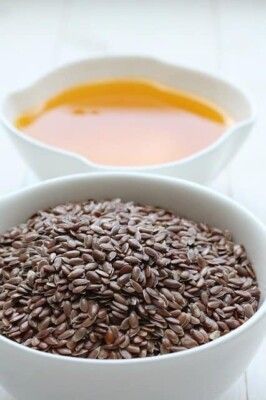Flaxseed: A regional superfood
The seeds of the flax, which is also known as common flax, are called linseed. Already in the distant past they were used as a remedy.
However, their popularity has hardly diminished to this day.
Regardless of whether in ground or whole form, as a capsule or oil: the small seeds contain numerous health-promoting ingredients that significantly boost the metabolism.
Of particularly high quality are flaxseeds from Germany.
But why are flaxseeds so healthy and how do they work in the body?? The following article explains it.
The healthy effects of flax seeds
Flaxseed is characterized by a very high content of dietary fiber, which promotes and supports digestion.
Particularly in the shell are swelling and mucilage, which also ensure that the feeling of satiety lasts longer.
The swelling agents also bind toxins in the intestines – thus supporting the body in its detoxification processes.
Approximately 30 percent of flaxseed also consists of omega-3 polyunsaturated fatty acids. Thus they contain even more than fish.
Circulation and heart are protected by the healthy fatty acids, and the body’s own defense cells are also supported.
In addition, the cholesterol level is positively influenced, the blood vessels are strengthened and the function of the brain is supported.
Flaxseed also contains lignans. These are secondary plant substances that act as natural phytoestrogens and extremely efficient antioxidants.
Here’s how to balance hormones in a healthy way. Lignans are also believed to have an anti-cancer effect.
Flaxseed also contains a good amount of vitamins, namely vitamins E, B1, B2 and B6.
In addition, folic acid is also found in the small seeds, which is essential for cell division and growth processes.
Flaxseed as a weight loss aid
Flaxseed can provide valuable services for weight loss. In the stomach the contained dietary fibers finally swell up and become extremely voluminous, so that the feeling of satiety is supported.
Besides the blood sugar level is held by the consumption of the seeds on a stable level, so that the feared hot hunger attacks are prevented effectively.
But that’s not all: flaxseed also contains a large portion of protein. Together with the unsaturated omega-3 fatty acids, a healthy build-up of muscle mass is supported.
With growing muscle mass also increases the basal metabolic rate of the body, so that in general more calories are burned in everyday life and weight loss is additionally promoted.
Calories and nutritional values of flaxseeds
In terms of calories, flaxseeds are indeed small heavyweights, but this does not mean that you should do without them.
Finally, they are an important supplier of unsaturated fatty acids, fiber and protein.
Fans of a low-carb diet can also rejoice: There are no carbohydrates in the small seeds, making them ideal for a low-carbohydrate diet.
The fat content of flaxseed is quite high, but this is no reason to panic. Almost 50 percent of the fat it contains is alpha-linolenic acid, which is essential for life and is triple unsaturated.
This fatty acid helps, for example, to alleviate inflammatory diseases of the intestine. In addition, it supports the formation of the body’s immune cells, the synthesis of protein, the production of hormones and the cell metabolism.
